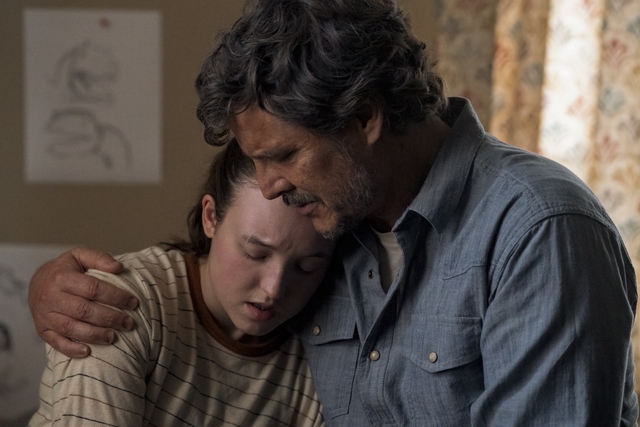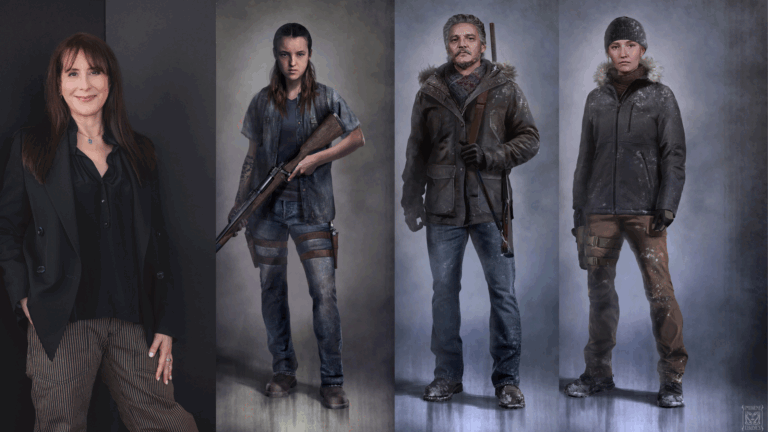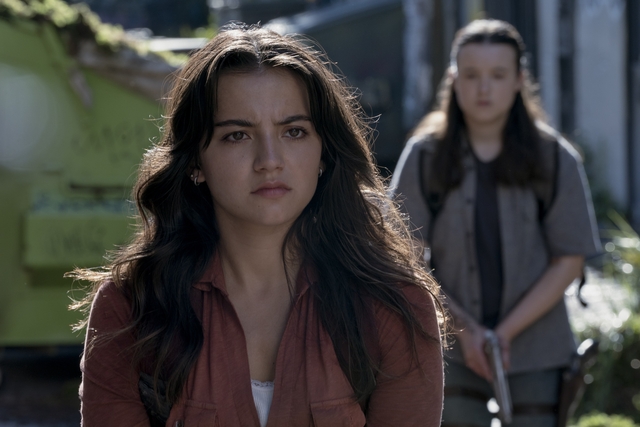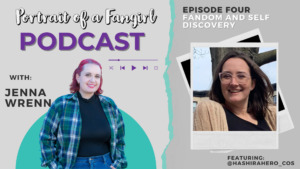“When We Are in Need,” the eighth episode of HBO’s The Last of Us, masterfully continues the show’s exploration of humanity’s propensity for violence. Perhaps even in ways more potent than in the game.
*The rest of this article contains spoilers for the above-mentioned episode, as well as some aspects of The Last of Us: Part I video game.
In The Last of Us: Part I, the events of episode eight play out mostly from Ellie’s point of view. We are with her when she meets David, the leader of a community of survivors who, we later find out, have resorted to cannibalism to survive the harsh winter. We stay with her throughout her struggles with the group, switching every now and then to Joel’s perspective as he sets out to find her. The most important part here, though, is that we are only ever with Joel and Ellie. By nature of gameplay, players never see David or his group apart from their interactions with the two main characters.
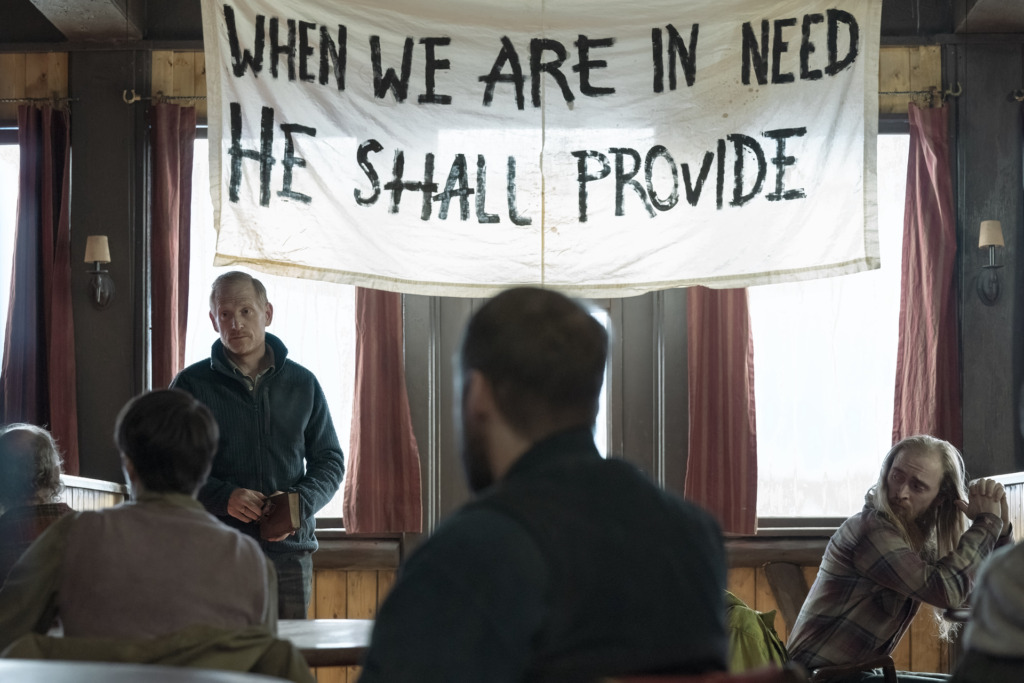
As with Kathleen and the Kansas City revolutionary group, David’s (Scott Shepherd) community is much more fleshed out in the show. We spend time with them, see the individual men, women, and children who make up the whole. We see a daughter demand justice for the loss Joel unintentionally dealt her when he killed her father at the end of episode six. The show reminds us that in this post-apocalyptic world, vengeance often becomes synonymous with justice.
Violence becomes the answer to a problem that cannot actually be solved.
David’s Cages
When David meets Ellie, he doesn’t want to kill her – he’s intrigued by her. He wants her to reflect who he views himself to be: strict, steadfast, unrelenting. He wants her to be his equal, not caring that she is still just a child.
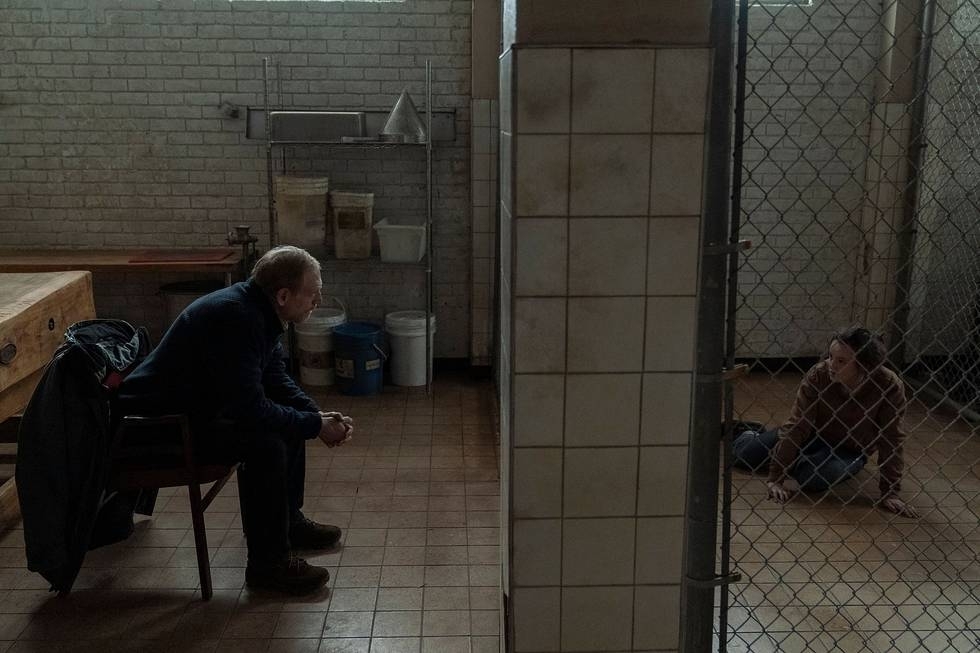
The conversation the two have while Ellie is locked away is all the more uncomfortable to watch when we consider how it acts as an opposite to Joel and Ellie’s conversation back in episode four after Ellie first saves Joel. As David lauds Ellie’s “violent heart” and abilities as a leader, we are reminded of Joel lamenting that “it isn’t fair, someone your age, having to deal with all of this.” Where Joel apologizes for Ellie having to hurt someone on his behalf, David wants to encourage her power over others.
Joel and David view Ellie very differently. One wants to protect, the other wants to exploit. In their efforts to do so, however, both fall in to the traps of violence.
Joel’s Choices
The first time we see Joel’s true propensity for violence is in episode one, when he beats to death the FEDRA officer outside the Boston QZ. Beyond that moment, though, we only hear snippets of Joel’s violent past. Episode eight goes a long way in actually showing just how violent and gruesome Joel can be when he chooses to act on his worst instincts.
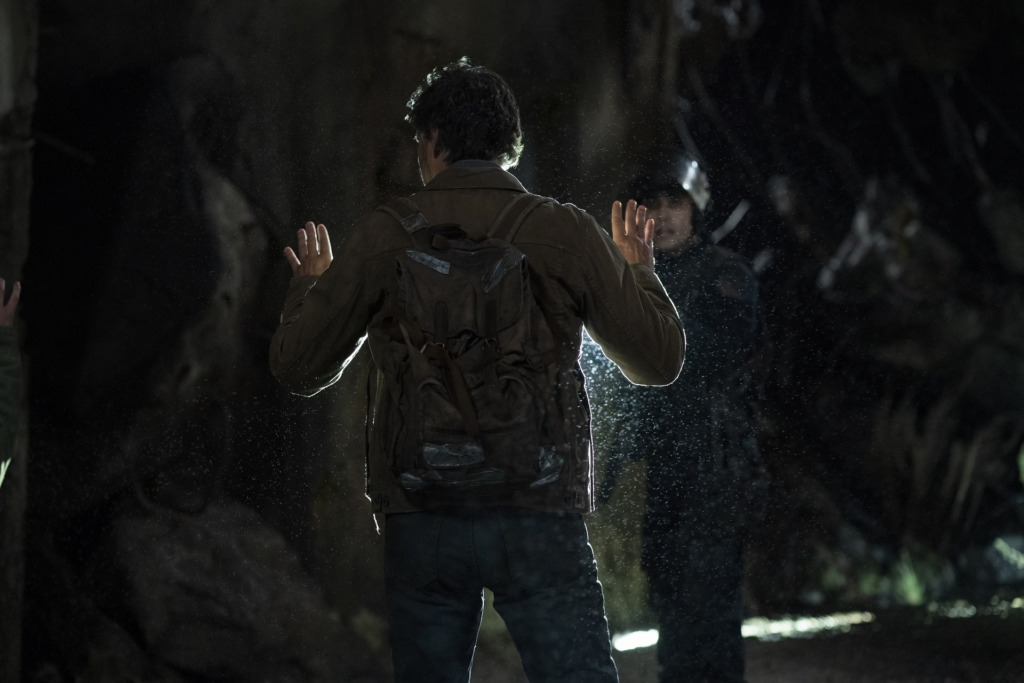
When Joel captures two of David’s men, he doesn’t immediately kill them as with the FEDRA officer. Neither does he merely question them as he did the old couple in Wyoming. Instead, he tortures them. He promises them life if they give him what he wants. He breaks that promise as soon as they do.
If reactions to this part of the game are any indication, viewers of the show might argue that Joel’s actions come from a deep, parental need to save his child. The framing of this episode, alongside Pedro Pascal’s phenomenal performance of a man undone by both love and violence, however, begs viewers to question the grey areas of that argument.
In the game, we know nothing about the men Joel tortures. We spend countless minutes trying to avoid dying by their hands. We know the horrors Ellie is facing back at their home base. It’s easy, then, to assume these men are just as bad as David, to not question Joel’s violence. Just as these men don’t know what Joel has been through, neither does Joel know their struggles. But the show forces us to see not only that these men have families, but that David consistently manipulates them. Some even question David’s choices.
In this light, from this perspective, what do Joel’s actions really look like? Especially when we consider the fact that, despite everything he does, Joel does not actually save Ellie. She saves herself.
Ellie’s Violent Heart
Though most of ‘When We Are in Need’ focuses on David’s and Joel’s different forms of violence, the episode ends with Ellie unleashing a violence of her own. Hers, however, is perhaps the most warranted of them all.
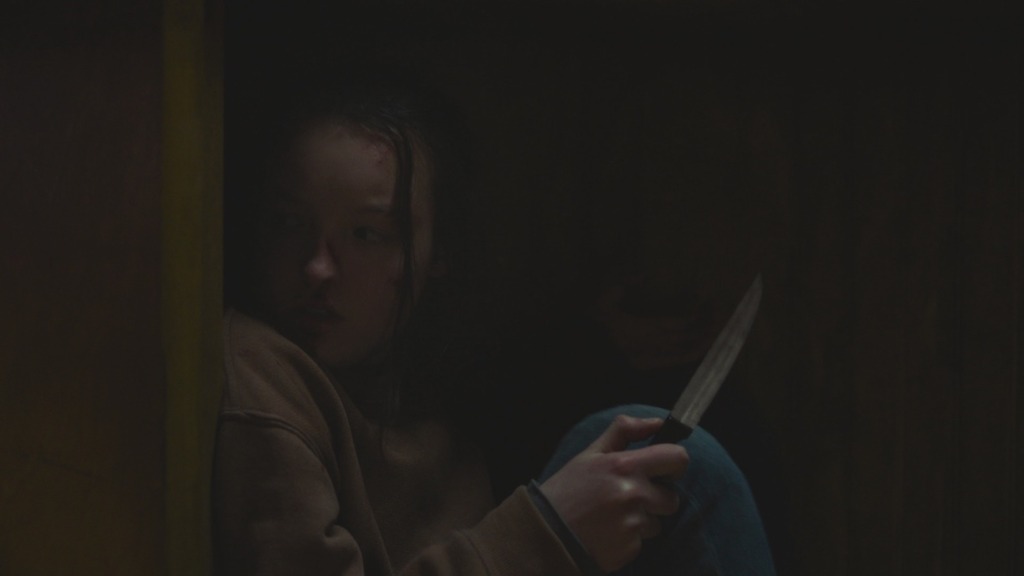
After the emotional and psychological horror David puts Ellie through, it is no wonder that when she gets the chance, she doesn’t just kill him, she annihilates him. Though no one could blame Ellie for her actions, the show does ask us to wonder at them.
When David tells Ellie, “You have a violent heart, and I should know. I’ve always had a violent heart,” there’s a moment when she considers his words. It gives us a moment to consider them, too. We have seen Ellie smile at Joel beating a man to death. We have seen her thrive after causing a girl to need fifteen stitches. Just like Joel, Ellie is nothing like David. But she is capable of more than she realizes, and, as with Joel, violence is included in that equation.
In a masterful feat of directing by Ali Abbasi and acting by Bella Ramsey, however, we see the moment Ellie does realize what she is capable of. As she kneels over David, slashing at him over and over again with the butcher’s knife he’d previously held over her, Ellie pauses. Her eyes widen. A look of horror flashes across her face. Just like that, we see fear of what has happened to her transform into fear of what she’s done.
Ellie has never killed a person like this before. In the aftermath, we are once again reminded of Joel’s words: “It isn’t fair, someone your age, having to deal with all of this.”
The Last of Us and Vicious Cycles
One of the simultaneously best and most difficult aspects of The Last of Us is that it asks us to connect with the main characters while forcing us to grapple with the ugly parts of their humanity. Ellie’s violence is understandable, but it’s also terrifying. Joel’s rage is warranted, but it’s also induced by fear, not by reason.
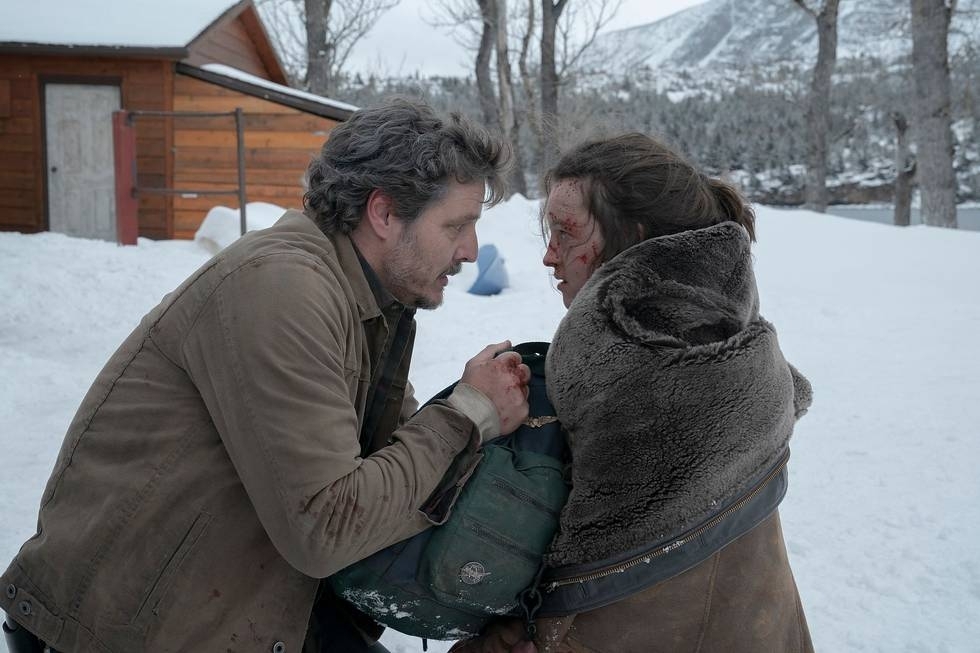
As game players know, the cycle of violence is the central theme in The Last of Us: Part II. Though we’ve seen the seeds of this sown throughout HBO’s adaptation of Part I so far, it is in this episode where those seeds start to grow.
Ellie won’t forget what happened here.
As we venture into the terrain of next week’s season finale, neither should we.
The Last of Us airs every Sunday at 9pm (EST) / 6pm (PST) on HBO Max.

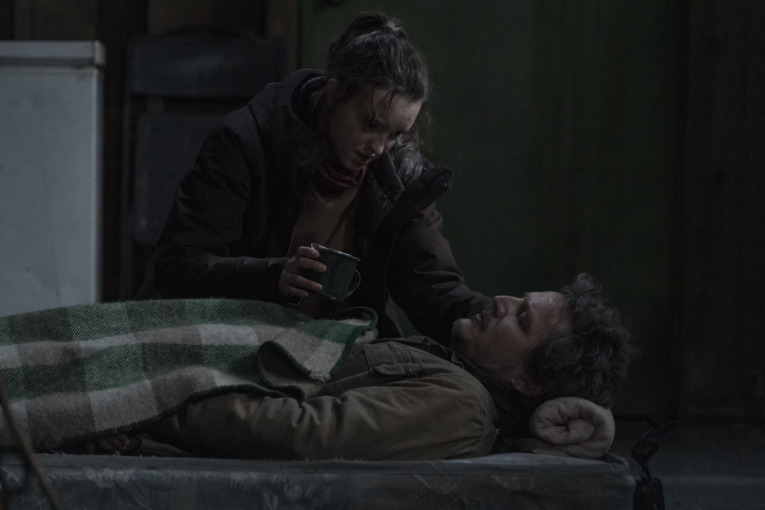
 Researcher, writer, fangirl, and book hoarder, Danielle is an American living in the U.K. Her interests include, but are not limited to: Star Wars, The Bear, The Last of Us, Marvel, and anything to do with Edgar Allan Poe. She is best known through her TikTok account @writteninthestarwars where she covers a wide range of fandom content.
TikTok: https://www.tiktok.com/@writteninthestarwars
Researcher, writer, fangirl, and book hoarder, Danielle is an American living in the U.K. Her interests include, but are not limited to: Star Wars, The Bear, The Last of Us, Marvel, and anything to do with Edgar Allan Poe. She is best known through her TikTok account @writteninthestarwars where she covers a wide range of fandom content.
TikTok: https://www.tiktok.com/@writteninthestarwars ![“[Lou Wilson] Might Die!” Siobhan Thompson Teases Dimension 20 Live: Battle At The Bowl](https://templeofgeek.com/wp-content/uploads/2025/05/Dimension-20-Battle-At-The-Bowl-header-768x384.jpg)

